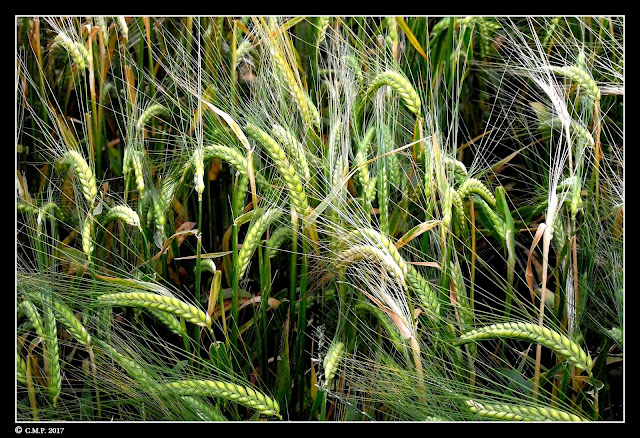I saw, as in a dream sublime,
The balance in the hand of
Time.
O'er East and West its beam
impended;
And day, with all its hours
of light,
Was slowly sinking out of
sight,
While, opposite, the scale of
night
Silently with the stars
ascended.
Like the astrologers of eld,
In that bright vision I
beheld
Greater and deeper mysteries.
I saw, with its celestial
keys,
Its chords of air, its frets
of fire,
The Samian's great Aeolian
lyre,
Rising through all its
sevenfold bars,
From earth unto the fixed
stars.
And through the dewy
atmosphere,
Not only could I see, but
hear,
Its wondrous and harmonious
strings,
In sweet vibration, sphere by
sphere,
From Dian's circle light and
near,
Onward to vaster and wider
rings.
Where, chanting through his
beard of snows,
Majestic, mournful, Saturn
goes,
And down the sunless realms
of space
Reverberates the thunder of
his bass.
Beneath the sky's triumphal
arch
This music sounded like a
march,
And with its chorus seemed to
be
Preluding some great tragedy.
Sirius was rising in the
east;
And, slow ascending one by
one,
The kindling constellations
shone.
Begirt with many a blazing
star,
Stood the great giant
Algebar,
Orion, hunter of the beast!
His sword hung gleaming by
his side,
And, on his arm, the lion's
hide
Scattered across the midnight
air
The golden radiance of its
hair.
The moon was pallid, but not
faint;
And beautiful as some fair
saint,
Serenely moving on her way
In hours of trial and dismay.
As if she heard the voice of
God,
Unharmed with naked feet she
trod
Upon the hot and burning
stars,
As on the glowing coals and
bars,
That were to prove her
strength, and try
Her holiness and her purity.
Thus moving on, with silent
pace,
And triumph in her sweet,
pale face,
She reached the station of
Orion.
Aghast he stood in strange
alarm!
And suddenly from his
outstretched arm
Down fell the red skin of the
lion
Into the river at his feet.
His mighty club no longer
beat
The forehead of the bull; but
he
Reeled as of yore beside the
sea,
When, blinded by Oenopion,
He sought the blacksmith at
his forge,
And, climbing up the mountain
gorge,
Fixed his blank eyes upon the
sun.
Then, through the silence
overhead,
An angel with a trumpet said,
"Forevermore,
forevermore,
The reign of violence is
o'er!"
And, like an instrument that
flings
Its music on another's
strings,
The trumpet of the angel cast
Upon the heavenly lyre its
blast,
And on from sphere to sphere
the words
Re-echoed down the burning
chords,--
"Forevermore,
forevermore,
The reign of violence is
o'er!"




























